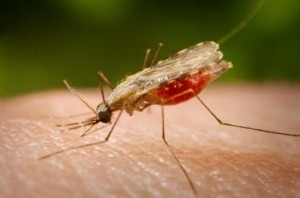In the latest breakthrough against malaria causing parasites, scientists have revealed that genetically modified mosquito with immunity towards the malaria parasite can be an effective solution towards fighting the disease. Scientists from the Johns Hopkins Malaria Research Center, who are pioneering the study, said that the anopheles mosquito could be genetically modified so as to block the transit of malarial infections into a human being. They also said that genetically modifying the mosquito to resist the pathogen would not affect the health of mosquito. The parasite that is responsible for causing malaria is plasmodium falciparum. The newly engineered mosquito will be able to kill this parasite when it enters the mosquito’s body through human blood. A mosquito is capable of killing several disease causing organisms that enters its body when it feeds on blood. However, the insect is not immune to the malaria parasite, which lives in the mosquito and when the mosquito feeds again, the parasite enters another body. The research has been led by associate professor at W. Harry Feinstone Department of Molecular Microbiology and Immunology, George Dimopoulos.

The team of researchers created a mosquito that produces a high level of Rel2, which is a protein in the immune system. This immune system protein is responsible for fighting and killing the malarial bacteria. This method is found to have been more effective because no new gene needs to be introduced in the body of the mosquito. The genes that already exist in the body of a mosquito have been modified or enhanced to give it a higher resistance against the malaria parasite. This is the reason why the health of a mosquito is not affected by the genetic modification.
Further scope of research is also substantial. As per the revelations of the scientists, this new breakthrough can make way for huge mosquito populations that are resistant to malaria causing plasmodium. The mosquitoes that have been genetically engineered retain their ability to lay the same number of eggs as a normal mosquito and have similar life cycles. They are equally healthy as well. From a human’s point of view, this genetic modification could have excellent benefits because malaria is one the largest killer diseases in the world.
The authors of the study are Suchismita Das, Layme A. Souza-Neto, Yuemei Dong, George Dimopoulos and Kyle J. McLean. The authors have said that since mosquitoes become immune to insecticides and other mosquito repellents very quickly, bringing genetic variations in them is the only clear solution to stop them from transmitting malaria.